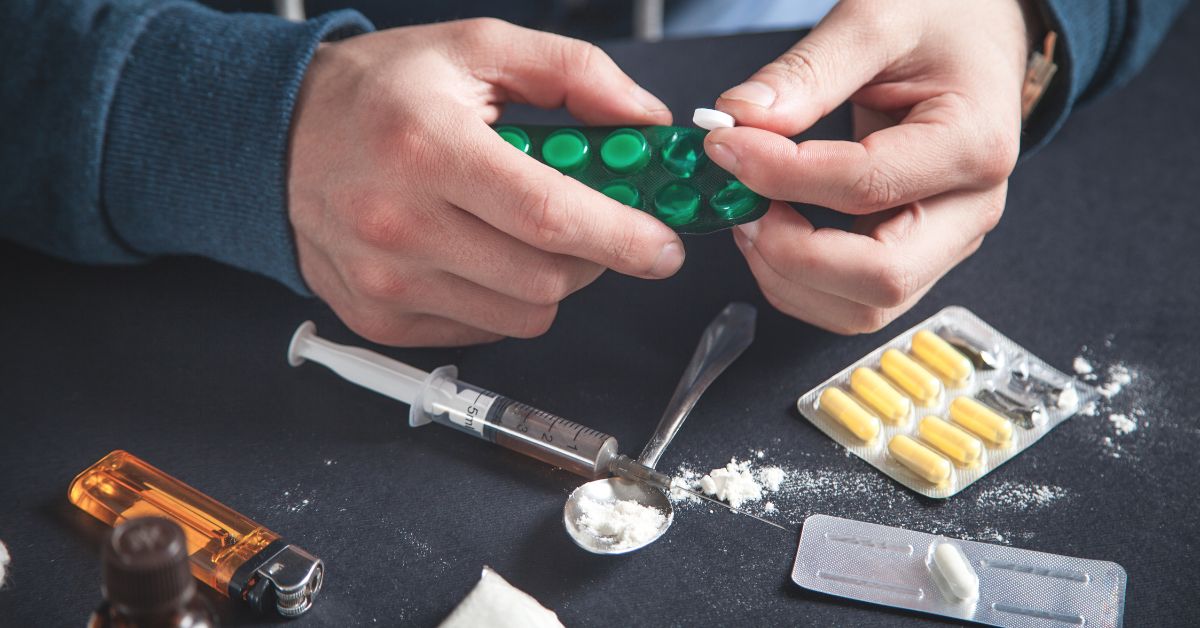Picture starting each day fresh, leaving past mistakes behind. For those struggling with addiction, this might seem impossible.
Addiction destroys every aspect of your loved one’s life, such as relationships, careers, and self-esteem. It’s like a never-ending cycle of getting back up only to get knocked down again from addictive behaviors.
While it’s a difficult journey filled with obstacles, change is achievable. With the right tools, your loved one can cope with an addictive personality and embrace good habits.
Let’s dive into the roots of addictive personality disorder and strategies that may be helpful to overcome it.
Understanding Addiction
Addiction is an overwhelming struggle with endless consequences. It takes over your whole life, from your mind and body to your physical, emotional, and behavioral well-being. That’s why it is essential to consider the differences between addiction vs. habit and understand who is more likely to develop specific behaviors.
When addiction takes hold, the substance or behavior starts negatively impacting the person’s life. Whether it’s opioids, alcohol, gaming, gambling, or some other “thing,” they are like invaders trying to take over your loved one’s life.
Warning Signs

Dealing with an addictive behavior is complex. It involves identifying patterns of impulsivity, a lack of concern for consequences, and an ongoing need for instant gratification. Also, ADHD and an addictive personality can coexist, as well as other mental health disorders.
These traits may indicate underlying problems contributing to addiction and require careful exploration by a trained professional. Identifying warning signs of substance use or unhealthy behaviors is not always straightforward. Still, some hints might indicate addictive traits, such as:
- Increased Impulsivity: This trait pushes them to respond immediately to their cravings without considering the potential consequences.
- Need for Immediate Gratification: People with addictions crave immediate gratification instead of focusing on the satisfaction that comes from long-term rewards.
- Emotional Instability: Individuals with substance use disorder experience intense emotions and frequent mood swings.
- Risk-Taking Tendencies: Someone dealing with addiction can be more prone to engage in dangerous activities or behaviors.
GET: The 3 things that actually "allowed" me to help my son (and regain control again)
Coping with Addictive Personality Traits
For people with addictive traits, it can feel like they have no control over their actions and decisions. No matter how hard they try, they can’t stop the urge to chase immediate gratification or instant results.
It’s essential to remember that while it’s not easy, your loved one can learn to manage their addictive tendencies and take back control of their life. To achieve this, they can follow these tips:
- Cultivate Self-Awareness: Identifying triggers, actions, and the results of addictive behavior can guide you toward the right path.
- Take Thoughtful Actions: Before giving in to an urge, pause and take a deep breath. Reflect on why you are feeling the urge and whether it will benefit your well-being to act on it.
- Build Resilience: Developing habits that take the place of addictive behaviors, like replacing a drink with a walk, can fortify resilience.
- Seek Professional Treatment: Therapists and counselors can serve as a guiding light, offering tools and strategies to prevent a relapse.
If someone you love uses drugs, alcohol or a particular behavior in an addicted way, stopping is challenging. However, it is possible; there is hope.
In order to control addiction and lead a more fulfilling life, the person with the addiction should seek professional help. It is also useful to adopt healthier coping mechanisms, such as exercise or meditation, during recovery.
The Road to Get Help

Take one step at a time when encouraging someone you love to overcome addiction. There’s no set roadmap for this journey and no perfect starting moment. Instead, it’s about being aware of the need for support and finding the courage to take those initial steps.
Stopping to Acknowledge: First Move Forward
To stop the cycle of addiction, your son or daughter has to acknowledge its presence. For many, this can feel like admitting defeat, but it’s an act of great courage.
It is a brave and admirable decision to admit that a problem has taken over and that it’s time to regain control. This moment of honesty deserves respect and support from everyone around the addicted person.
Seeking Professional Support: Outsourcing the Navigation
It can be tough for your loved one to navigate addiction on their own; that’s why seeking the right help is crucial.
While family and friends can offer support, addiction is a complex issue that often requires the expertise of healthcare professionals. If someone you love is struggling, reaching out for the help they need is okay – this isn’t a challenge they should face alone.
Formal Rehab: The Gold-Standard
When and if your loved one is open to it, formal rehab is the gold-standard model for recovery. It is a place where they give tools, strategies, and fresh perspectives to battle addiction.
They will gain the tools they need for recovery, learn how to rebuild their life, and become stronger against the challenges that come their way.
Embrace Support on the Road Toward Recovery
Recognizing that someone you love is struggling with addiction is a significant milestone. However, seeking help can often feel overwhelming and confusing.
Don’t lose hope – by accepting the situation, seeking professional guidance, and exploring rehab options, the path toward recovery can become clearer.
WATCH: Free, confidential workshop that explains how to "Love Another Way"
Strategies to Overcome Addiction
Defeating addictive traits requires ongoing commitment, courage, and self-compassion. With these strategies as your guide, you can help your loved one progress toward recovery.
Remember to be kind during the process and take things one step at a time, and you’ll reach your victory peak.
- Develop Coping Mechanisms: They can be as simple as taking deep breaths, counting up to ten, or exercising. These tools are a personal support system in case of encountering triggers.
- Take Care of Mental Health: Therapy teaches how to address the root causes of addiction and other related problems. It’s all about introspection and self-discovery.
- Practice Patience: Addiction treatment takes time. Avoid rushing things and expecting overnight changes.
Taking One More Step Toward Recovery

Addiction and recovery can feel like a scary, lonely journey. But let’s not forget that the bravest thing to do is to seek help and start the process of healing. And remember, your loved one’s addiction does not define them forever. They have the strength to defeat it, set the course for their recovery, and shape it to fit their needs.
Even though it’s not easy, with the proper support and tools, your loved one can break free from their addictive tendency. The first step in recognizing the addiction is essential, but seeking professional help, support groups, and self-reflection are also crucial.
A supportive network of people can provide encouragement and help to accomplish this journey. Using the previous strategies, being resilient, and never losing hope, your son or daughter can overcome their addiction and improve their life.
Frequently Asked Questions About How To Overcome Addictive Personality
What is the root cause of an addictive personality?
The root cause is a complex interplay of genetics, psychology, and environmental influences. This means it’s not just one factor but multiple contributing elements that cultivate substance abuse and addiction.
Which personality type is addictive?
No specific personality type is inherently addictive. However, certain traits like impulsivity, desire for instant gratification, and risk-taking tendencies may increase the propensity for addictive behaviors.
NEW: How to make the shift from "Mom Code" to prioritizing your own well-being
What are the signs of an addictive personality?
The signs often manifest as impulsive actions. People with substance use disorder tend to act without thinking about the consequences, want quick rewards or pleasure, have big mood swings, and take lots of risks.
Is addiction genetic?
Having family members dealing with drugs and alcohol makes you more prone to addiction, but it’s not a guarantee. While genetics can play a role in addiction, it’s important to remember that factors like environment and lifestyle choices can affect the risk of developing addiction as well.
